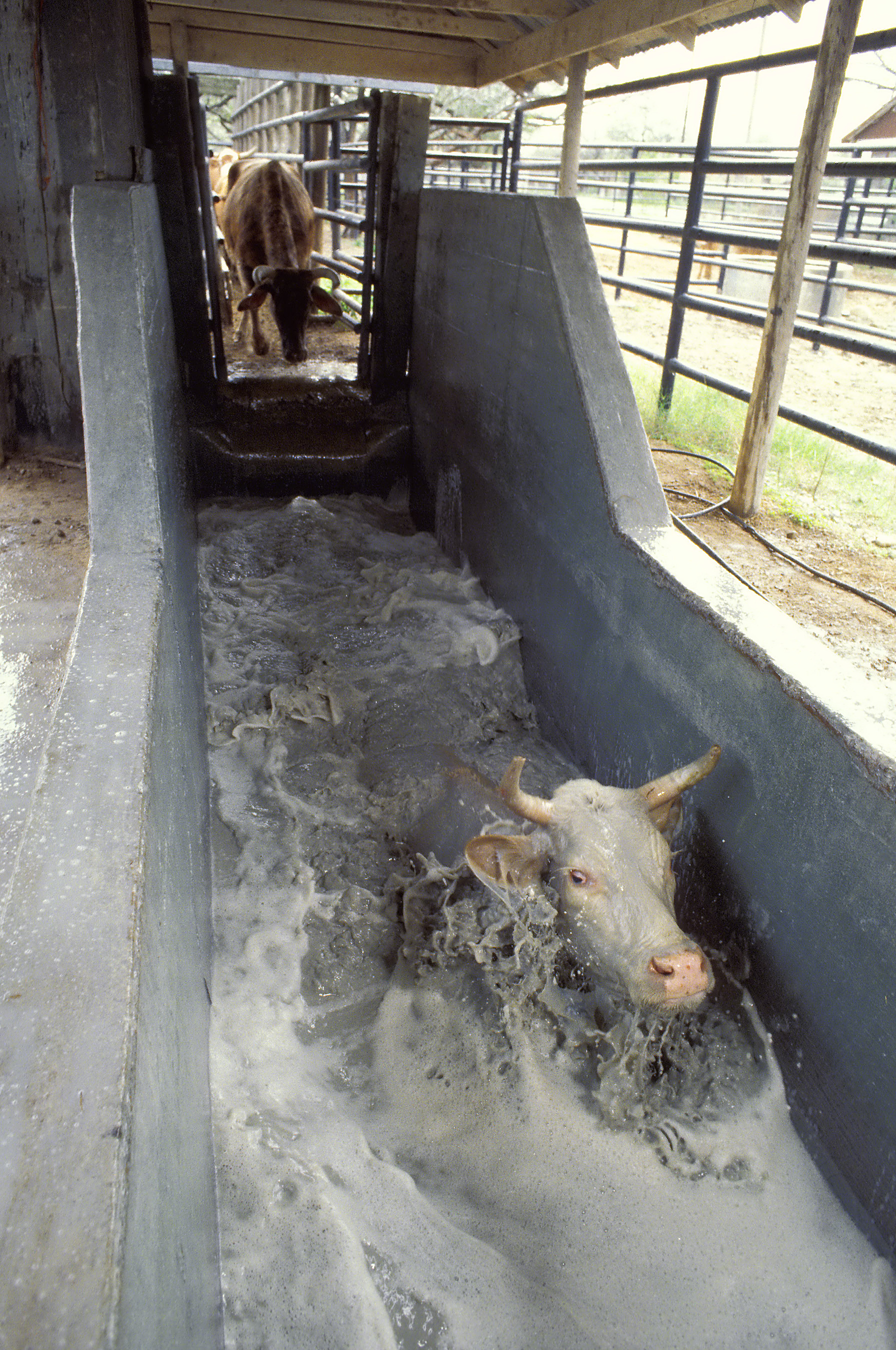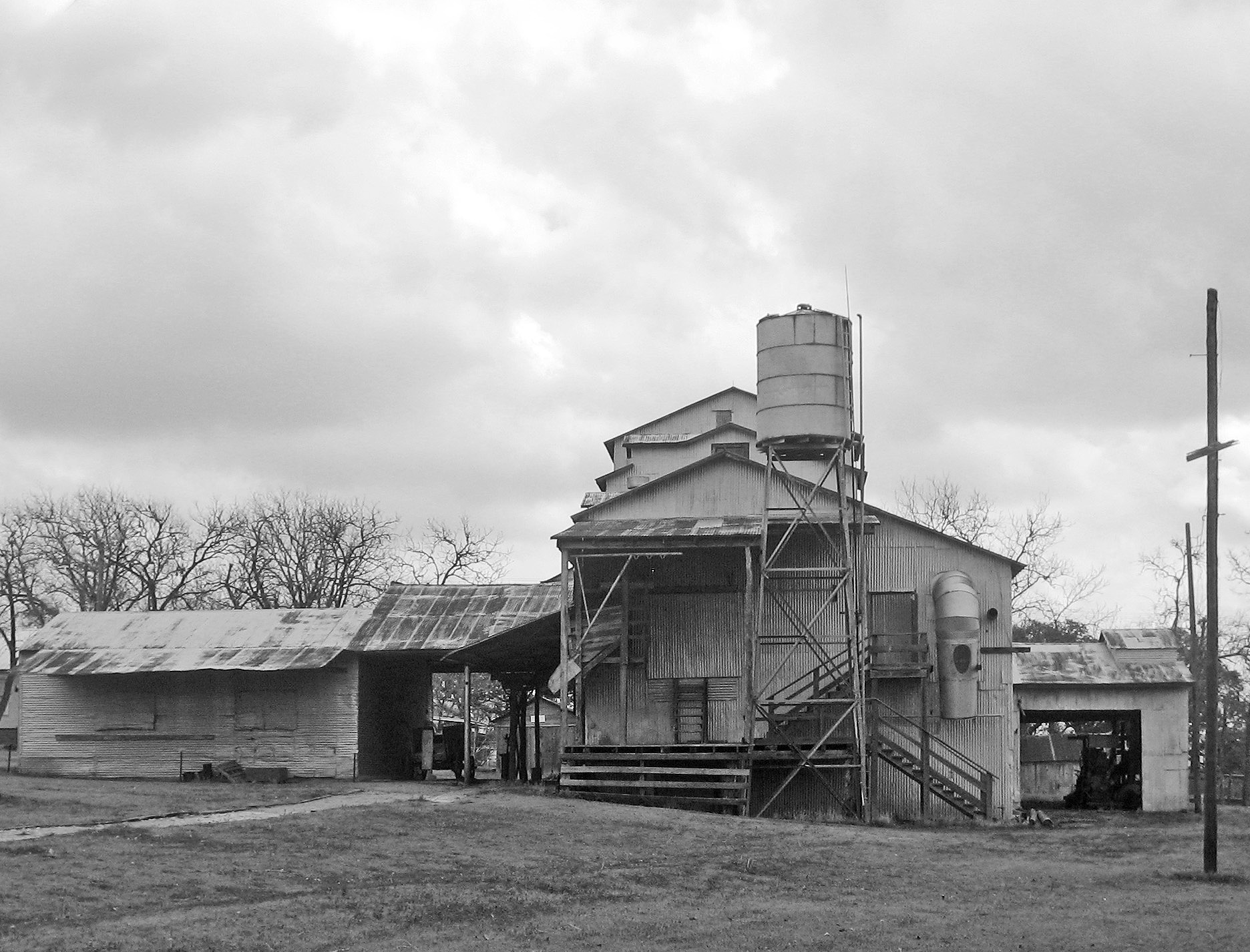|
Ironton, Texas
Ironton is an unincorporated community in Cherokee County, located in the U.S. state of Texas. According to the Handbook of Texas, the community had a population of 110 in 2000. It is located within the Tyler-Jacksonville combined statistical area. History C.H. Martin named the town for the ruins of a nearby iron manufacturing plant and promoted settlement in the area in 1904. That same year, a post office was established, and Charley J. Pool deeded land grants. Two years later, a gristmill and cotton gin were established by Louis A. Pritchett. A blacksmith shop and a garage were built south of the gin. A plunge dip was built to help establish a Babesiosis program. U.S. Highway 79 was routed east of the International-Great Northern Railroad and bypassed Ironton toward Palestine. The last store in the community burned to the ground in 1930 and another was built on the east side of the highway. Edgar W. Brittain took over and opened a service station in 1931, operating both unti ... [...More Info...] [...Related Items...] OR: [Wikipedia] [Google] [Baidu] |
Unincorporated Community
An unincorporated area is a region that is not governed by a local municipal corporation. Widespread unincorporated communities and areas are a distinguishing feature of the United States and Canada. Most other countries of the world either have no unincorporated areas at all or these are very rare: typically remote, outlying, sparsely populated or uninhabited areas. By country Argentina In Argentina, the provinces of Chubut, Córdoba, Entre Ríos, Formosa, Neuquén, Río Negro, San Luis, Santa Cruz, Santiago del Estero, Tierra del Fuego, and Tucumán have areas that are outside any municipality or commune. Australia Unlike many other countries, Australia has only one level of local government immediately beneath state and territorial governments. A local government area (LGA) often contains several towns and even entire metropolitan areas. Thus, aside from very sparsely populated areas and a few other special cases, almost all of Australia is part of an LGA. Uninco ... [...More Info...] [...Related Items...] OR: [Wikipedia] [Google] [Baidu] |
Blacksmith
A blacksmith is a metalsmith who creates objects primarily from wrought iron or steel, but sometimes from #Other metals, other metals, by forging the metal, using tools to hammer, bend, and cut (cf. tinsmith). Blacksmiths produce objects such as gates, grilles, railings, light fixtures, furniture, sculpture, tools, agricultural implements, decorative and religious items, cooking utensils, and weapons. There was an historical distinction between the heavy work of the blacksmith and the more delicate operation of a whitesmith, who usually worked in Goldsmith, gold, Silversmith, silver, pewter, or the finishing steps of fine steel. The place where a blacksmith works is called variously a smithy, a forge or a blacksmith's shop. While there are many people who work with metal such as farriers, wheelwrights, and Armourer, armorers, in former times the blacksmith had a general knowledge of how to make and repair many things, from the most complex of weapons and armor to simple things ... [...More Info...] [...Related Items...] OR: [Wikipedia] [Google] [Baidu] |
Jacksonville Independent School District
Jacksonville Independent School District is a public school district based in Jacksonville, Texas, United States. Brad Stewart is currently the superintendent of JISD. In addition to Jacksonville, the district serves the towns of Cuney and Gallatin, and rural areas in northwestern Cherokee County. In 2009, the school district was rated " academically acceptable" by the Texas Education Agency. Info Mascot: Indians (HS), Braves (MS) Colors: Blue and Gold School Song Schools High School (Grades 9-12) * Jacksonville High School Middle School (Grades 7-8) *Jacksonville Middle School Intermediate School (Grades 5-6) *Nichols Intermediate School Elementary Schools (Grades PK-4) *East Side Elementary School *Fred Douglass Elementary School *West Side Elementary School *Joe Wright Elementary School Alternative School (Grades PK-12) *Compass Center See also *List of school districts in Texas *List of high schools in Texas References {{reflist External linksJacksonvill ... [...More Info...] [...Related Items...] OR: [Wikipedia] [Google] [Baidu] |
World War II
World War II or the Second World War, often abbreviated as WWII or WW2, was a world war that lasted from 1939 to 1945. It involved the World War II by country, vast majority of the world's countries—including all of the great powers—forming two opposing military alliances: the Allies of World War II, Allies and the Axis powers. World War II was a total war that directly involved more than 100 million Military personnel, personnel from more than 30 countries. The major participants in the war threw their entire economic, industrial, and scientific capabilities behind the war effort, blurring the distinction between civilian and military resources. Air warfare of World War II, Aircraft played a major role in the conflict, enabling the strategic bombing of population centres and deploying the Atomic bombings of Hiroshima and Nagasaki, only two nuclear weapons ever used in war. World War II was by far the List of wars by death toll, deadliest conflict in hu ... [...More Info...] [...Related Items...] OR: [Wikipedia] [Google] [Baidu] |
Earle's Chapel, Texas
Earle's Chapel is an unincorporated community in Cherokee County, Texas, Cherokee County, located in the U.S. state of Texas. It is west-southwest of Jacksonville off U.S. Route 79, U.S. Highway 79. Government Earle's Chapel and the surrounding area are served by Station #1 of its own Volunteer Fire Department. earleschapelvfd.org. Retrieved 2018-05-26. Education The Earle's Chapel area is served by the Jacksonville Independent School District.References External links Earles Chapel Cemetery at Find A Grave Unincorporated communities in Cherokee County, Texas Unincorporated communities in Texas {{CherokeeCountyTX-geo-stu ... [...More Info...] [...Related Items...] OR: [Wikipedia] [Google] [Baidu] |
Anderson County, Texas
Anderson County is a county in the U.S. state of Texas. Located within East Texas, its county seat is Palestine. As of the 2020 United States census, the population of Anderson County was 57,922. Anderson County comprises the Palestine micropolitan statistical area. Anderson County was organized in 1846, and was named for Kenneth Lewis Anderson (1805-1845), the last vice president of the Republic of Texas. History Native Americans Native Americans friendly to the settlers resided in East Texas before the Kiowa, Kickapoo, Kichai, Apache, and Comanche relocated to the territory. These tribes hunted, farmed the land, and were adept traders. By 1772, they had settled on the Brazos at Waco and on the Trinity upstream from present Palestine. The Tawakoni branch of Wichita Indians originated north of Texas, but migrated south into East Texas. From 1843 onward, the Tawakoni were part of treaties made by both the Republic of Texas and the United States. On May 19, 1836, an allia ... [...More Info...] [...Related Items...] OR: [Wikipedia] [Google] [Baidu] |
Jacksonville, Texas
Jacksonville is a city located in Cherokee County, Texas, United States. The population was 13,997 at the 2020 U.S. census. It is the principal city of the Jacksonville micropolitan statistical area, which includes all of Cherokee County, and part of the larger Tyler–Jacksonville combined statistical area. Jacksonville is located in an area of rolling hills in East Texas, north of the county seat, Rusk, and south of Tyler, in neighboring Smith County, on U.S. Highway 69. The north-south Highway 69 intersects the east–west U.S. Highway 79 adjacent to the city's downtown area. Area production and shipping of tomatoes gained the town the title "Tomato Capital of the World". The impressive red iron ore rock Tomato Bowl, built by Works Progress Administration workers during the Great Depression, is home to the Jacksonville High School "Fightin' Indians" football and soccer teams. Annual events include the "Tops in Texas Rodeo" held in May and the "Tomato Fest" celebration in ... [...More Info...] [...Related Items...] OR: [Wikipedia] [Google] [Baidu] |
Palestine, Texas
Palestine ( ) is a city in and the seat of Anderson County in the U.S. state of Texas. It was named for Palestine, Illinois, by preacher Daniel Parker, who had migrated from that town. The city had a 2020 U.S. census population of 18,544, making it the sixth-largest incorporated municipality in Northeast Texas by population. Palestine is a relatively small city located in the Piney Woods, equidistant from the major cities of Dallas, Houston, and Shreveport, Louisiana. It is notable for its natural environment, and has a notable dogwood blooming season. It has 23 historical sites on the National Register of Historic Places, and was the western terminus of the historic Texas State Railroad. Today this steam-and-diesel railroad museum operates tourist trains between Palestine and Rusk. History Indigenous groups such as the Coushatta Indians occupied this area for thousands of years before European encounter. During the years of Spanish and Mexican control of major parts of ... [...More Info...] [...Related Items...] OR: [Wikipedia] [Google] [Baidu] |
Babesiosis
Babesiosis or piroplasmosis is a malaria-like parasitic disease caused by infection with a eukaryotic parasite in the order Piroplasmida, typically a '' Babesia'' or ''Theileria'', in the phylum Apicomplexa. Human babesiosis transmission via tick bite is most common in the Northeastern and Midwestern United States and parts of Europe, and sporadic throughout the rest of the world. It occurs in warm weather. People can get infected with ''Babesia'' parasites by the bite of an infected tick, by getting a blood transfusion from an infected donor of blood products, or by congenital transmission (an infected mother to her baby). Ticks transmit the human strain of babesiosis, so it often presents with other tick-borne illnesses such as Lyme disease. After trypanosomes, ''Babesia'' is thought to be the second-most common blood parasite of mammals. They can have major adverse effects on the health of domestic animals in areas without severe winters. In cattle the disease is known ... [...More Info...] [...Related Items...] OR: [Wikipedia] [Google] [Baidu] |
Plunge Dip
A plunge dip (also known as a dipping vat, dipping tank or, simply, a dip) is a bath designed to immerse livestock in liquid pesticide or other treatment. Design Typically a dip is designed as a narrow channel (about the width of the animal) through which the animals walk, immersing them in progressively deeper liquid until the animal is completely immersed (apart from its head so it can breathe). The channel then becomes progressively shallower until the animal exits. Because many animals can walk through the channel one after another, it is an efficient method of delivering pesticide or other liquid treatments to a large herd. A liquid product used to treat the livestock by immersion in a plunge dip is also known as a ''dip'' (e.g. sheep dip). See also * ''R v Korsten'' * Cattle drenching Cattle drenching is the process of administrating chemical solutions (anthelmintics) to cattle or ''Bos taurus'' with the purpose of protecting livestock from various parasites includi ... [...More Info...] [...Related Items...] OR: [Wikipedia] [Google] [Baidu] |
Cotton Gin
A cotton gin—meaning "cotton engine"—is a machine that quickly and easily separates cotton fibers from their seeds, enabling much greater productivity than manual cotton separation.. Reprinted by McGraw-Hill, New York and London, 1926 (); and by Lindsay Publications, Inc., Bradley, Illinois, (). The fibers are then processed into various cotton goods such as calico, while any undamaged cotton is used largely for textiles like clothing. The separated seeds may be used to grow more cotton or to produce cottonseed oil. Handheld roller gins had been used in the Indian subcontinent since at earliest AD 500 and then in other regions. The Indian worm-gear roller gin, invented sometime around the 16th century, has, according to Lakwete, remained virtually unchanged up to the present time. A modern mechanical cotton gin was created by American inventor Eli Whitney in 1793 and patented in 1794. Whitney's gin used a combination of a wire screen and small wire hooks to pull the cott ... [...More Info...] [...Related Items...] OR: [Wikipedia] [Google] [Baidu] |






